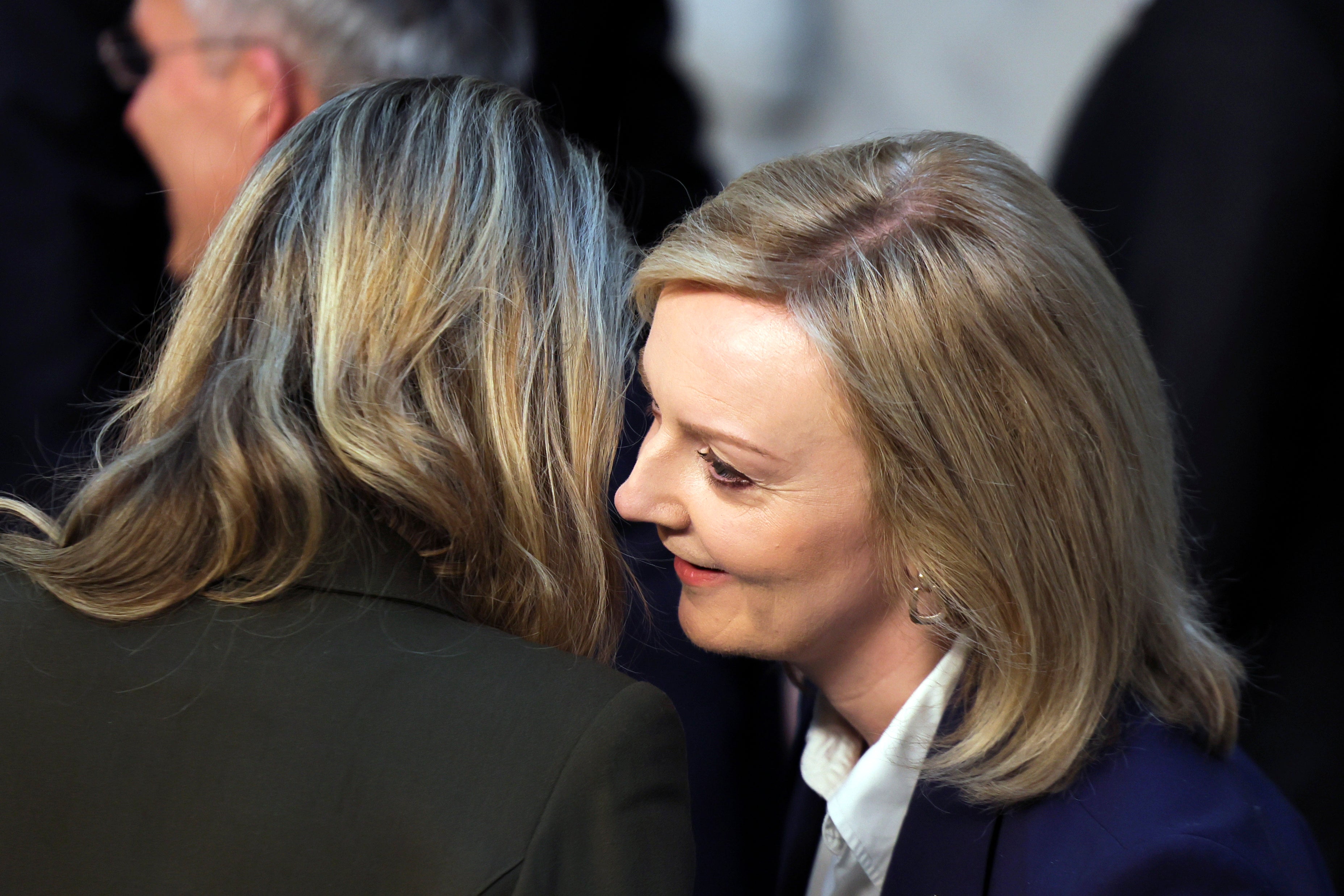Kyiv warns resupply needed ‘in days’ as Nato agrees to provide heavier weapons
Ukrainian foreign minister Dmytro Kuleba said help would come ‘too late’ if weapons were not supplied immediately.

Your support helps us to tell the story
From reproductive rights to climate change to Big Tech, The Independent is on the ground when the story is developing. Whether it's investigating the financials of Elon Musk's pro-Trump PAC or producing our latest documentary, 'The A Word', which shines a light on the American women fighting for reproductive rights, we know how important it is to parse out the facts from the messaging.
At such a critical moment in US history, we need reporters on the ground. Your donation allows us to keep sending journalists to speak to both sides of the story.
The Independent is trusted by Americans across the entire political spectrum. And unlike many other quality news outlets, we choose not to lock Americans out of our reporting and analysis with paywalls. We believe quality journalism should be available to everyone, paid for by those who can afford it.
Your support makes all the difference.UK and Nato allies have agreed to supply “new and heavier” weapons to Ukraine as Kyiv warned it needs immediate reinforcement in its struggle against Russia or it will be “too late”.
Foreign Secretary Liz Truss said, following a meeting with alliance counterparts in Brussels, there had been agreement to help the Ukrainian defenders upgrade their “Soviet era equipment to Nato standard equipment on a bilateral basis”.
Meanwhile, Ms Truss labelled Russia a “global pariah” after a United Nations vote to suspend Vladimir Putin’s country from the UN Human Rights Council.
The UN General Assembly voted by 93 to 24 to suspend Russia from the human rights body, with 58 abstentions.
Nato foreign ministers met in the Belgian capital on Thursday to hear the demands from Ukraine for more equipment before agreeing to bolster their defences.
Ukrainian foreign minister Dmytro Kuleba, speaking after the talks, said there was cautious optimism about the level of Western military backing for his country, but urged for weapons to be handed over swiftly.
Mr Kuleba warned: “Either you help us now, and I’m speaking about days, not weeks, or your help will come too late.”
We recognised that the conflict has entered a new and different phase with a more concentrated Russian offensive
He declined to say which countries would be providing equipment or what kind they would be.
Following the conclusion of the Nato meeting, Ms Truss said: “We agreed to step up support for Ukraine and we’ve also recognised that the conflict has entered a new and different phase with a more concentrated Russian offensive.
“There was support for countries to supply new and heavier equipment to Ukraine so that they can respond to these new threats from Russia.
“And we agreed to help Ukrainian forces move from their Soviet era equipment to Nato standard equipment on a bilateral basis.
“Putin has changed his tactics, but not his intent.
“He wants a hold over the whole of Ukraine.
“And our objective as a United Kingdom remains clear: Putin must lose in Ukraine.”
Nato allies fear that Russia’s decision to withdraw from areas around Kyiv will allow Mr Putin, the Russian president, to concentrate his offensive in Ukraine’s east.
Ukrainian generals have visited the UK to see some of the kit that could potentially be offered, including armoured vehicles which could offer troops protection from Russian attack as they move around the war zone.
The Czech Republic has reportedly sent Soviet-era tanks and personnel carriers to Ukraine, and The Times suggested the UK is also drawing up plans to supply armoured vehicles to help resist Russian forces.
Prime Minister Boris Johnson had earlier on Thursday indicated that Britain was looking to offer more military assistance, a move Labour leader Sir Keir Starmer backed.
The UK is already supplying equipment including anti-tank and anti-air missiles to Ukraine’s armed forces.
According to The Times, options under consideration at the Ministry of Defence (MoD) for furthering that support include sending Mastiff or Jackal patrol vehicles to the battlefield.
The latest MoD intelligence assessment confirmed Russia is now focused on operations in the Donbas region in the east of Ukraine.
Russian artillery and air strikes continue in the region, with officials suggesting attacks on infrastructure targets are designed to make it more difficult for the Ukrainian military to resupply.
But, despite having regrouped following a failed offensive on the capital, Russian forces are “likely to continue facing morale issues and shortages of supplies and personnel”, the MoD said.
On sanctions, the Foreign Secretary said she hoped to see “more countries” commit to banning Russian energy imports, as Kyiv pushed for European leaders to go further in punishing Moscow.
Mr Kuleba said: “As long as the West continues buying Russian gas and oil it is supporting Ukraine with one hand while supporting the Russian war machine with another hand.
“How many Buchas have to take place for you to impose sanctions?” he said, referring to images of Ukrainian civilians apparently killed by retreating Russian forces on the outskirts of Kyiv.